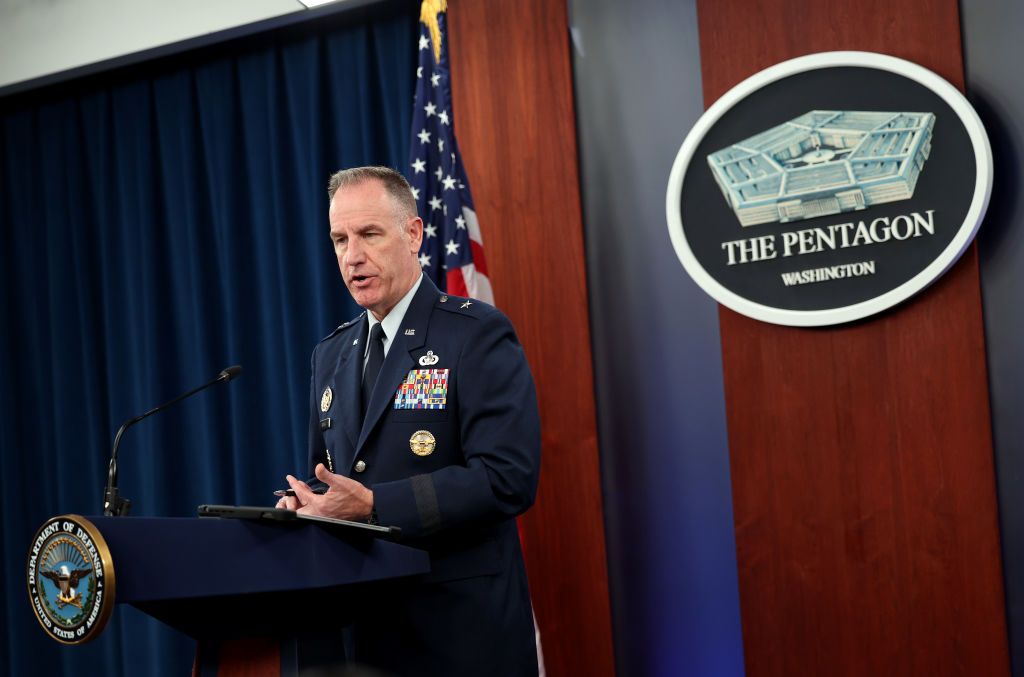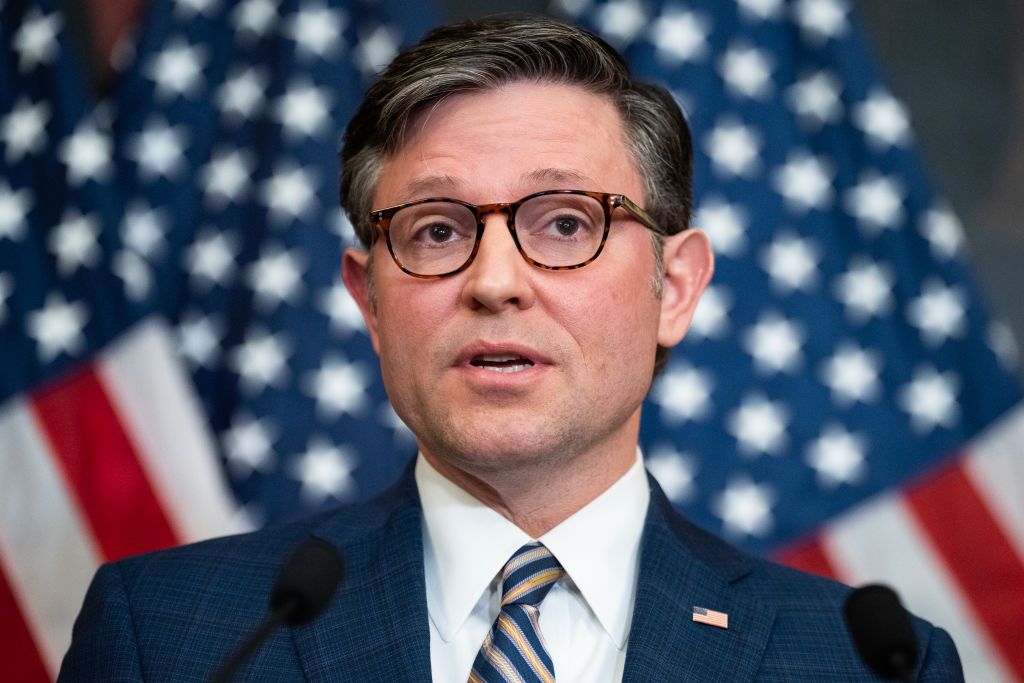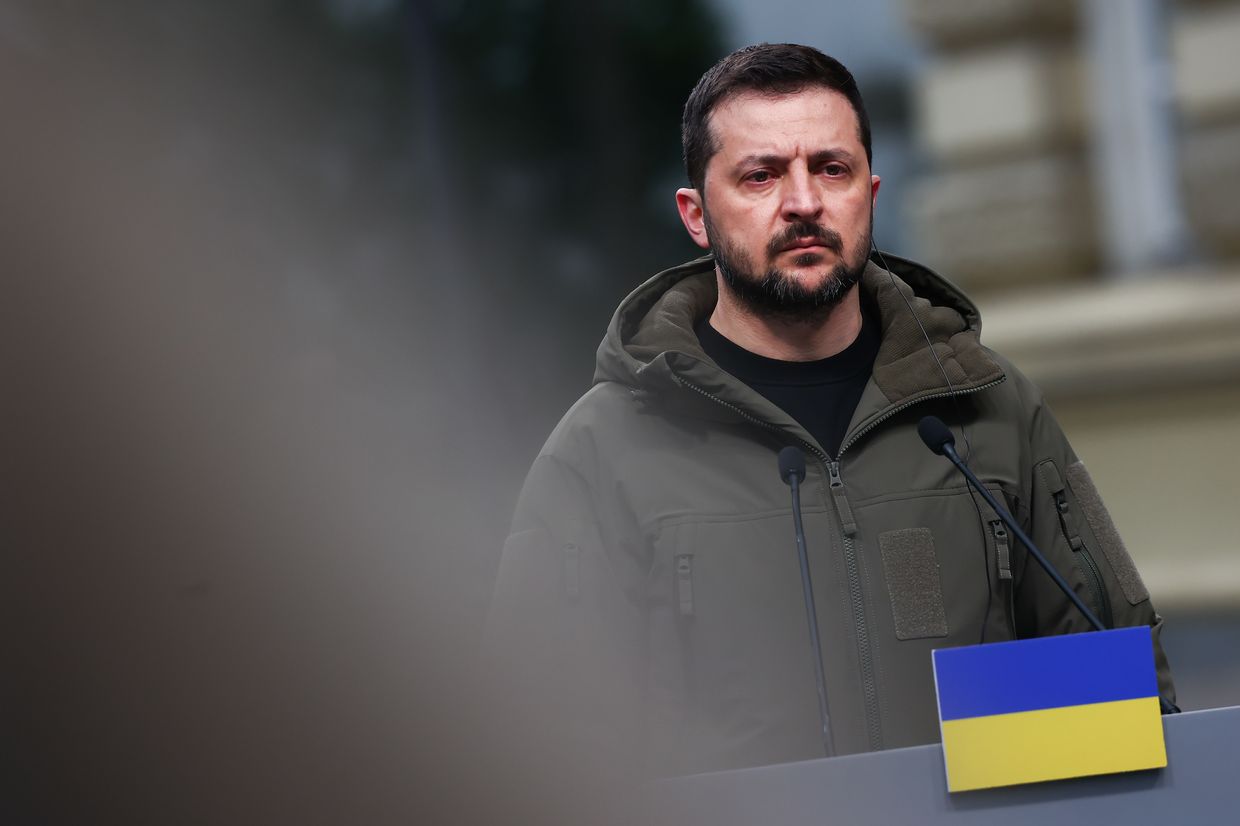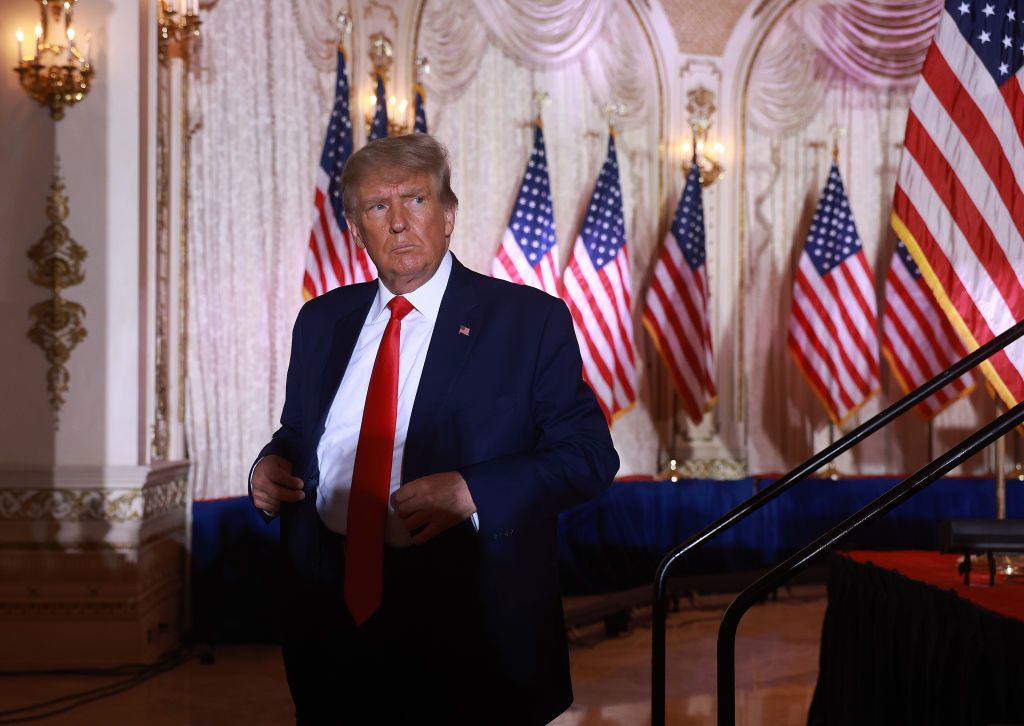Border concerns take over after Trump's primary victories, Ukraine aid in question

Former President Donald Trump delivered commanding victories in both the Iowa caucus and New Hampshire primary, resulting in all but one of his opponents dropping out of the race.
The sole remaining candidate, former UN ambassador Nikki Haley, faces an uphill battle to become the nominee and is already receiving calls from party leadership to end her campaign.
As the race quickly becomes a general election fight against U.S. President Joe Biden, Republican leadership is closing ranks behind Trump.
Senate Minority Leader Mitch McConnell referred to Trump behind closed doors as the "nominee" and privately signaled he was willing to abandon a potential deal on border security issues on the grounds that it could undermine Trump's campaign.
While these domestic political fights should not, in theory, impact the U.S.'s support for Ukraine, the border and Ukraine aid have become linked. Broadly, negotiations so far have been centered around the proposal that Democrats will make concessions on stricter border security measures in exchange for Republican support on aid for Ukraine.
Senate Republicans blocked a bill in December that contained $61 billion in aid for Ukraine, and U.S. funding for Ukraine has effectively run dry since then.
It was unclear how an agreement could be made on even these tenuous grounds, as a substantial deal on border and immigration policy has eluded Congress for years.
Trump's decisive victory over Haley, who is a proponent of the U.S.'s continued support of Ukraine, has changed the equation further.
The former president has made it clear he intends to run on a platform centered around immigration, and a deal by Congress to resolve (at least temporarily) the issue could upend his electoral strategy. Trump wrote on social media that no bill should be passed "unless we get EVERYTHING needed to shut down the INVASION of Millions & Millions of people."
Republican lawmakers have said that a bipartisan agreement would effectively hand Biden a much-needed win ahead of the general election. Senator Ted Cruz accused those in his party in favor of a deal of prioritizing Ukraine over the border.
Cruz said that Republicans should not accept what he perceives as incomplete border measures just so that a deal can be reached on Ukraine aid.
Even if a combined border security-Ukraine aid bill passes the Senate, House Republicans have clearly indicated that they will not support it.
"This border bill, if you send it to us, is dead on arrival. Dead," reportedly said Brett Horton, the chief of staff of House Majority Leader Steve Scalise.
Senator Mitt Romney, one of the few Republican senators openly opposed to Trump, explicitly said that the former president was trying to prevent any potential deal in order to keep the issue active in his electoral campaign.
"He’s contacted members of Congress telling them that he doesn’t want a border deal because he wants to run on this issue. Appalling," said Romney.
Political commentator Matthew Yglesias wrote on Jan. 25 that "Republicans are deliberately sowing chaos at the border because they think it will help Trump, and Ukraine is just going to be randomly sacrificed to Russia as a side effect."
McConnell said on Jan. 25 that he still supports a proposed border security-Ukraine aid bill, pushing back against the assertion that the measure was dead. The Senate minority leader has repeatedly emphasized his commitment to Ukraine, saying in October 2023 that he would go "all out" to try and convince his colleagues to follow suit.
In light of Trump's primary victories and subsequent narrowing of the field, McConnell said on Jan. 24 that the "politics have changed."
There are still some pathways forward for Ukraine aid to be passed.
It is possible, as McConnell suggested, that decoupling the aid from the more contentious border and immigration issues may lower the temperature on the issue.
Republican Senator Dan Sullivan proposed that non-military aid be shaved off the package, potentially letting the EU and other allies of Ukraine provide economic aid. Such a strategy "could help get the Ukraine aid over the goal line with a lot of Republican support," he said.
An unnamed Republican Senator told The Hill that McConnell may try to include military aid for Ukraine as part of funding packages that must be passed in March in order to avoid a government shutdown.
As Republicans have doubled down on the primacy of border and immigration issues, it is unclear how these strategies would work when others have failed. The majority of Republican lawmakers still support continuing to provide aid to Ukraine, but they have also said that border and immigration measures must be passed first.
After Florida Governor Ron DeSantis, the third leading candidate, dropped out of the presidential race following his loss in the Iowa caucus, the race narrowed to just two: Haley and Trump. Voters were thus presented with a clear choice when it came to aid for Ukraine.
Haley has often mentioned the need to support Ukraine, saying that defending the country was in the U.S.'s national interest.
"This is a war about freedom, and it's one we have to win," she said in June 2023.
In comparison, Trump's campaign website illustrates his views on the issue succinctly.
"If I were president, the Russia-Ukraine War would never have happened,” he said. "But even now, if I were president, I’d be able to negotiate an end to this horrible and rapidly escalating war in 24 hours."
"We must end this ridiculous war and demand peace in Ukraine now before it gets worse," he concluded.
There is no mention of Ukraine's right to defend itself, to protect its citizens and territorial sovereignty, or the fact that Russia started the war and has committed widespread war crimes. Trump has previously called Russia's war a "genocide" but primarily emphasizes the need for immediate peace when discussing the war on the campaign trail.
Although Trump has already notched two decisive victories, the Republican primary is not yet over, and he won the New Hampshire primary by a smaller margin than expected. Haley has vowed to stay in the race despite the odds. A deal in Congress may still be reached.
Republicans have nonetheless made it clear that continuing to support Ukraine is not a top priority; a view echoed by polls of the Republican electorate.














